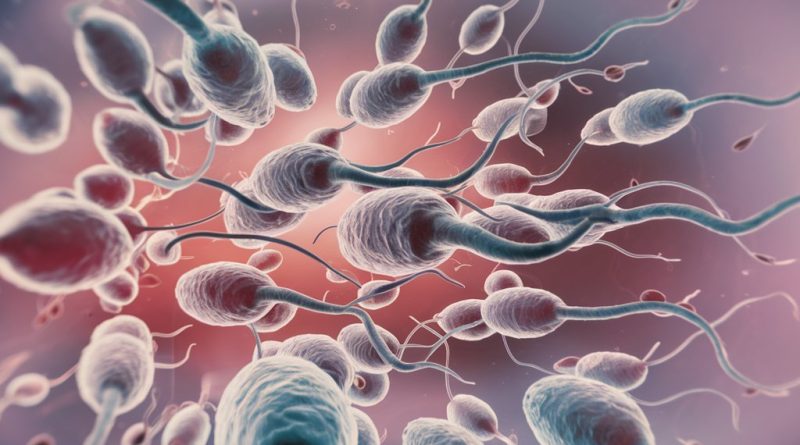Causes and Treatments for Low Sperm Count and Azoospermia
Male infertility is a common issue that affects many couples trying to conceive. Low sperm count and azoospermia are significant contributors to this challenge. Understanding the causes and available treatments can help couples navigate their fertility journey. This article delves into the causes of low count and azoospermia, and explores the treatment options that infertility specialists at fertility clinics recommend.
Furthermore, emerging technologies such as stem cell therapy and gene editing hold the promise of restoring fertility in cases previously deemed untreatable.
Understanding and Azoospermia
Low count, or oligospermia, occurs when a man has fewer than 15 million semen per milliliter of semen. Azoospermia, on the other hand, is the complete absence of sperm in the ejaculate. Both conditions can significantly impact a couple’s ability to conceive naturally. A semen analysis is often the first step in diagnosing these conditions, with a normal report indicating healthy sperm count, motility, and morphology.
Common Causes of Low Sperm Count and Azoospermia
Several factors can contribute to or azoospermia, and identifying the underlying cause is crucial for effective treatment.
1. Hormonal Imbalances
- Hormones play a critical role in sperm production. Imbalances in testosterone, follicle-stimulating hormone (FSH), or luteinizing hormone (LH) can lead to reduced sperm production or azoospermia. These imbalances may be due to issues with the pituitary gland, hypothalamus, or testicles.
2. Genetic Factors
- Genetic abnormalities, such as Klinefelter syndrome, Y chromosome microdeletions, or other chromosomal disorders, can impair sperm production. These genetic conditions are often diagnosed through specialized tests recommended by an infertility specialist.
3. Obstructive Issues
- Physical blockages in the male reproductive tract can prevent sperm from being present in the ejaculate, leading to obstructive azoospermia. Causes of obstruction include previous surgeries (like vasectomy), infections, or congenital abnormalities in the reproductive organs.
4. Infections
- Certain infections, including sexually transmitted infections (STIs) and mumps, can damage the reproductive organs and negatively affect sperm production. Prompt treatment of infections is crucial to prevent long-term fertility issues.
5. Varicocele
- A varicocele is an enlargement of the veins within the scrotum, which can increase the temperature in the testicles and impair sperm production. Varicoceles are one of the most common reversible causes of male infertility.
6. Lifestyle Factors
- Lifestyle choices can also impact sperm quality and quantity. Smoking, excessive alcohol consumption, obesity, and exposure to environmental toxins or heat can contribute to low sperm count. Making healthier lifestyle choices can improve overall fertility.
Treatment Options for Low Sperm Count and Azoospermia
Infertility specialists at fertility clinics offer a variety of treatments tailored to address the specific causes of low sperm count and azoospermia. These treatments aim to restore or enhance sperm production and improve the chances of conception.
1. Hormonal Therapy
- If hormonal imbalances are identified as the cause, medications may be prescribed to regulate hormone levels and stimulate production. Hormonal therapy is often used to correct issues with the pituitary gland or hypothalamus.
2. Surgical Interventions
- Surgical procedures are often required to address obstructive azoospermia. These may include:
- Varicocelectomy: A procedure to repair varicoceles, which can improve production.
- Vasectomy Reversal: This procedure reconnects the vas deferens, allowing to enter the ejaculate again.
3. Antibiotic Treatment
- If infections are contributing to low count, antibiotics may be prescribed to clear the infection. Early treatment is essential to prevent permanent damage to the reproductive organs.
4. Assisted Reproductive Technologies (ART)
- For men with non-obstructive azoospermia, ART techniques like IVF (in vitro fertilization) or ICSI are viable options. IVF involves combining eggs in a laboratory setting to create embryos, which are then transferred to the uterus. ICSI, often used in conjunction with IVF, involves directly injecting a single sperm into an egg.
5. Lifestyle Modifications
- Making positive lifestyle changes can significantly impact semen quality. Infertility specialists often recommend quitting smoking, reducing alcohol consumption, maintaining a healthy weight, and avoiding exposure to environmental toxins. Additionally, managing stress and ensuring adequate sleep can further enhance fertility.
The Role of Fertility Clinics
Fertility clinics play a vital role in diagnosing and treating male infertility. A thorough semen analysis is typically the first step in assessing health. Based on the results, infertility specialists can develop a personalized treatment plan that addresses the specific needs of each patient.
These clinics offer a range of services, from basic fertility assessments to advanced treatments like IVF and ICSI. Their comprehensive approach ensures that couples receive the best possible care and support throughout their fertility journey.
Fertility clinics are at the forefront of integrating these innovations into their treatment protocols. By staying updated with the latest research and advancements, these clinics provide patients with the most effective and cutting-edge options available. This proactive approach not only improves the chances of conception but also enhances the overall experience for couples navigating the challenges of infertility.
Conclusion
Azoospermia are significant contributors to male infertility, but with the right diagnosis and treatment, many men can still achieve fatherhood. Whether the cause is hormonal, genetic, obstructive, or lifestyle-related, infertility specialists at fertility clinics offer a range of effective treatments. By understanding the potential causes and available treatment options, couples can make informed decisions and improve their chances of successful conception.
Couples facing male infertility should feel encouraged by the progress being made in this field. By working closely with experienced fertility clinics and

